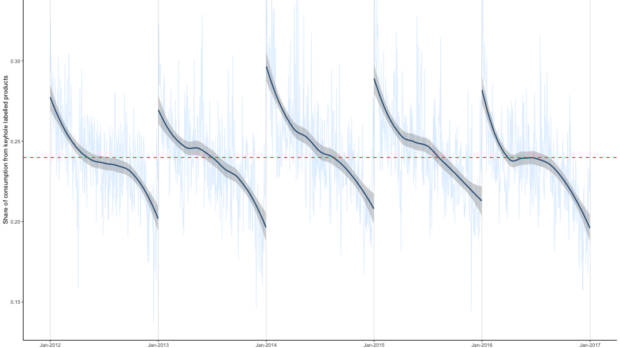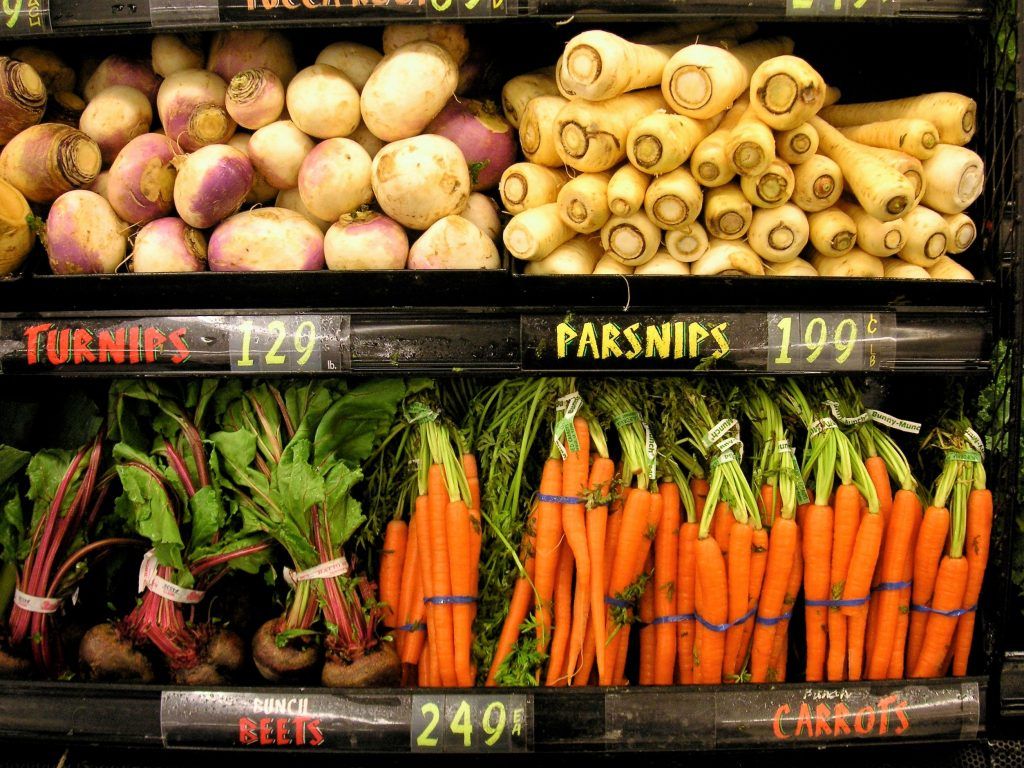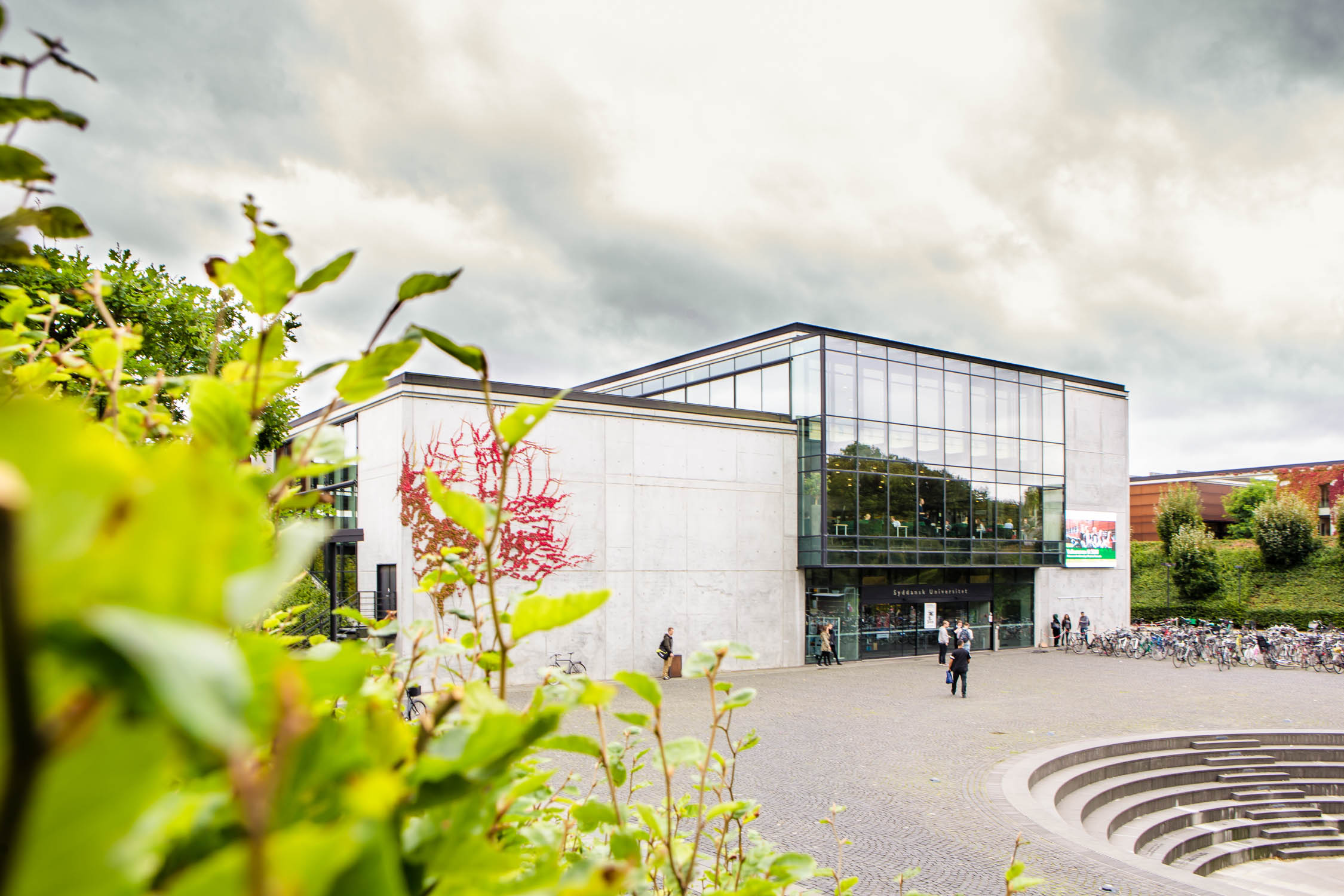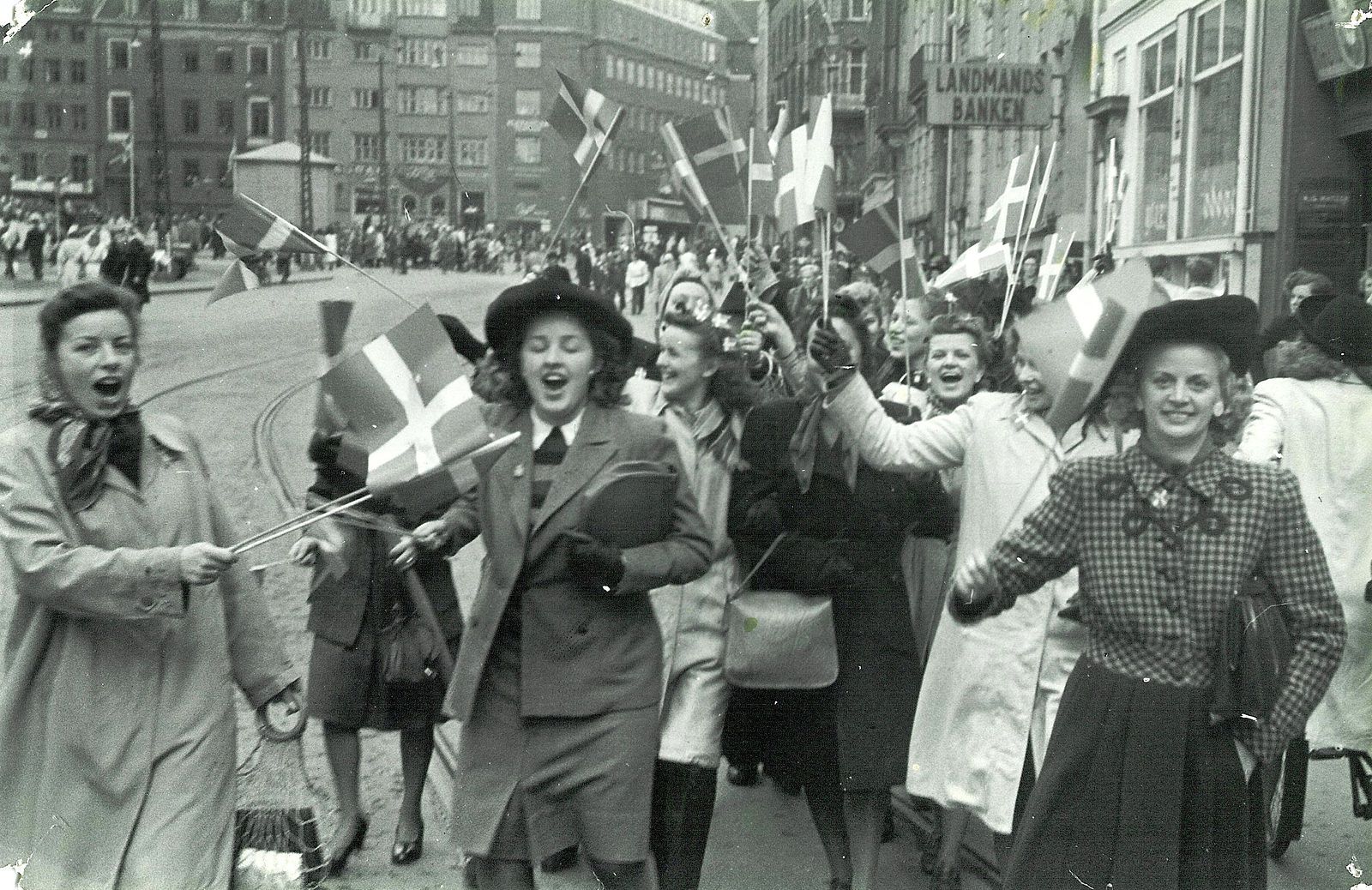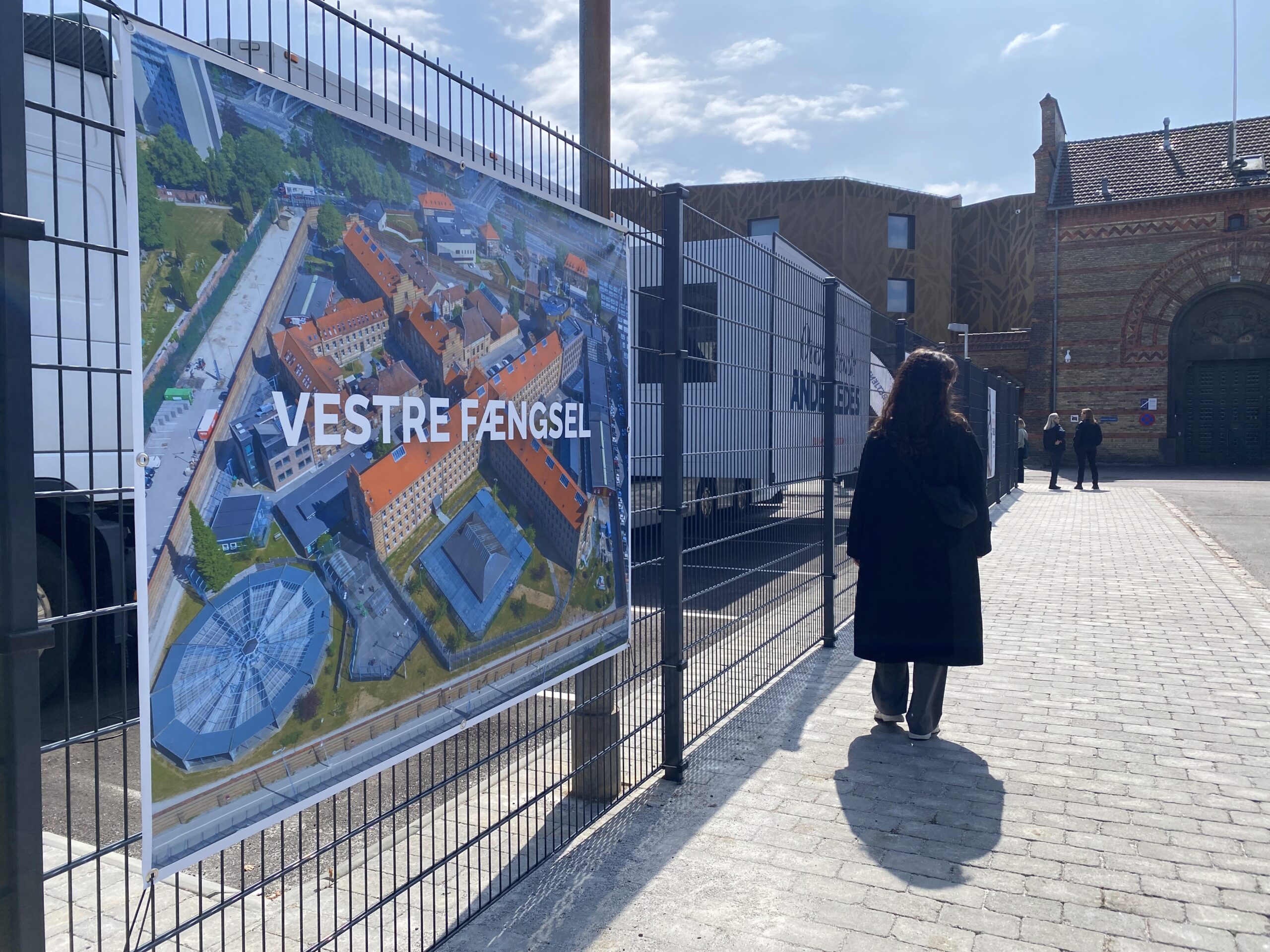“This year I’ll eat healthier: more vegetables, less coffee … no sugar.”
Sound familiar? Of course it does. If it’s not you then it’s someone right next to you taking the yearly vow to clean up their diet, starting bright-eyed and bushy-tailed on January 1 with a kale smoothie.
Alright, make that January 2. It’s inhuman to drink kale on a NYE hangover.
That initial leniency might snowball into a ‘transitional week’: you buy a courgette spiralizer and fill your fridge with greens while finishing the festive leftovers. Next week the real work begins.
But alas, it’s a doomed venture. Individuals may buck the trend, but if supermarket data is anything to go by the yearly health-kick will die off by February.
The same story every year
“The striking thing is that every year we see that people buy the healthiest in January. From there, the curve falls evenly, flattening out around the summer, and then collapsing around the month of December,” says Carl-Emil Pless from the Department of Food and Resource Economics at the University of Copenhagen, who has spearheaded a new study into Danish January shopping habits.
You’d think that two years of upheaval wrought by the pandemic would have had some effect, but our dietary fluctuations seem to be unassailably engrained habits that even evade seismic social shifts.
“It’s weird that so little varies from year to year. Even in 2020, which in every possible way has been different, the decline of healthy food vs unhealthy food has been stable.”
The same trend affects the way individuals follow government dietary advice, according to Pless. “Evidence suggests we adhere less and less to dietary guidelines as the year progresses,” he says.
Explaining the figures
The University of Copenhagen study collected data from some 2,500 Danish households, who reported their grocery purchases throughout the year by scanning the product barcodes.
The results show that as the year goes on shoppers buy fewer ‘keyhole’ products.
The keyhole label indicates that the food contains more dietary fibre and less saturated fat, sugar and salt.
The graph below shows the proportional decline of keyhole goods purchases throughout the year, from 2012-17.
The share of healthy food falls drastically month after month until January, when the curve – and “new year, new me” – begins again.
So, whether this inspires you to greater resolve or eases the guilt of flunking your resolutions, at least take comfort from the fact that we’re all in this together.
